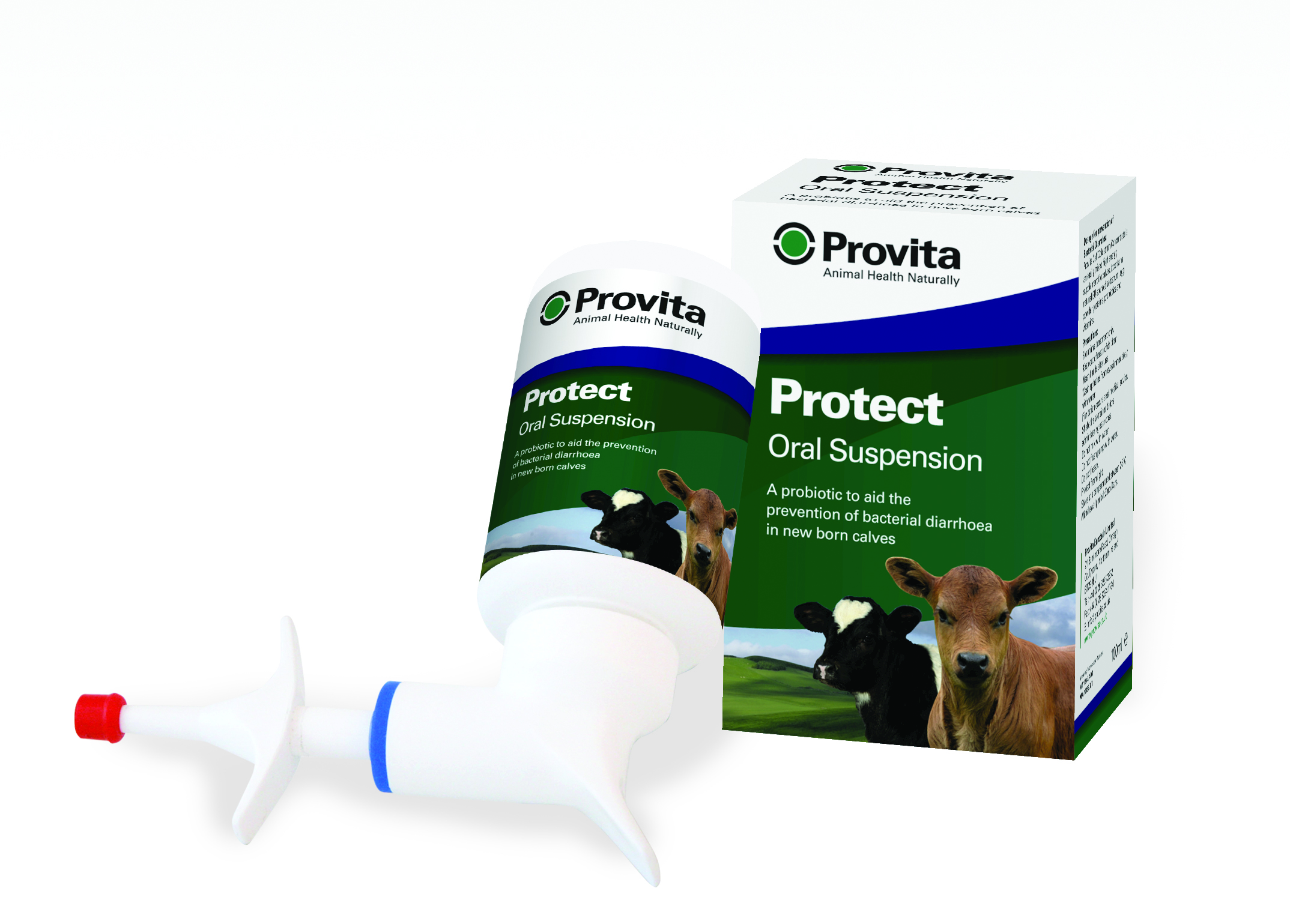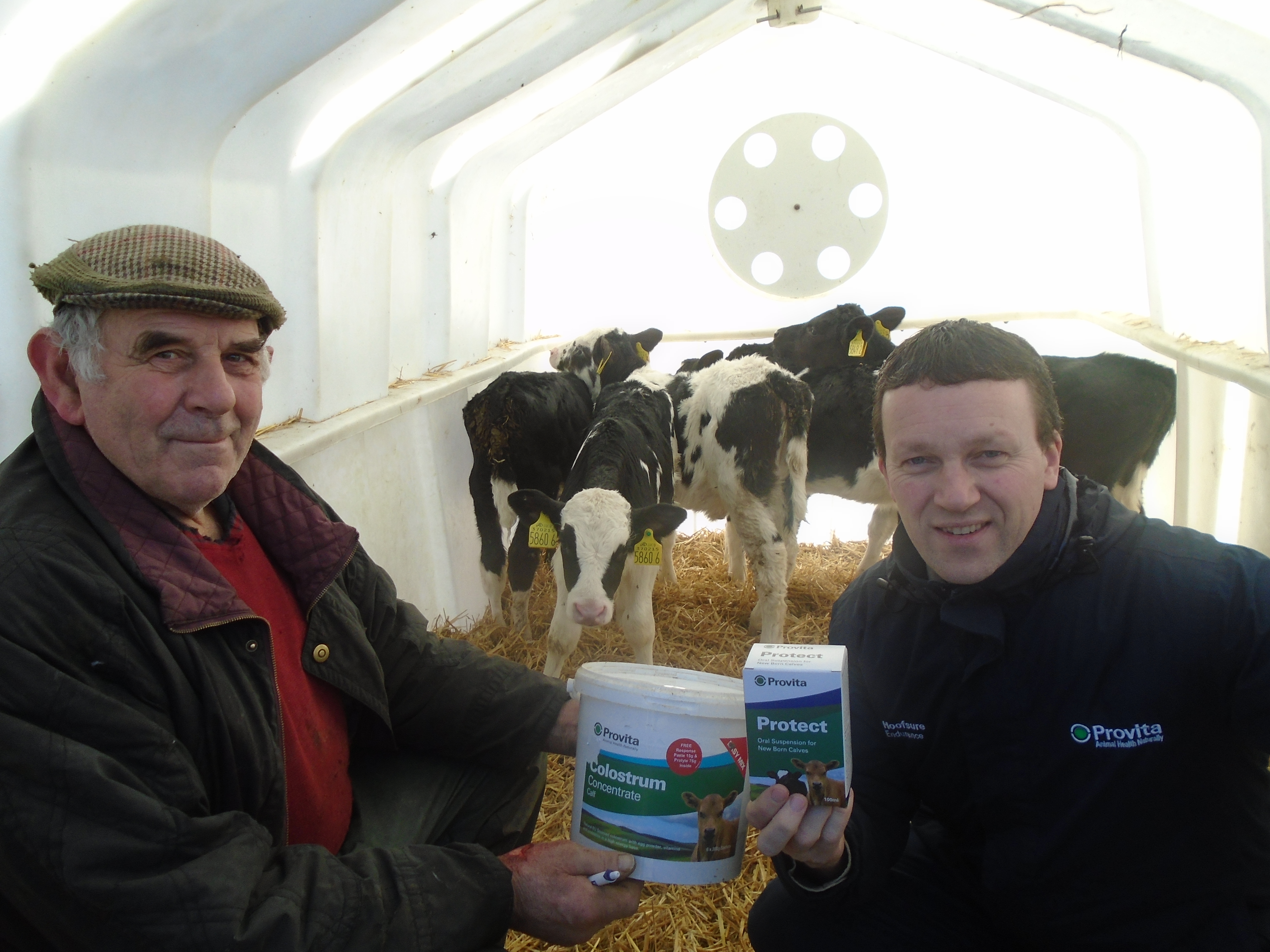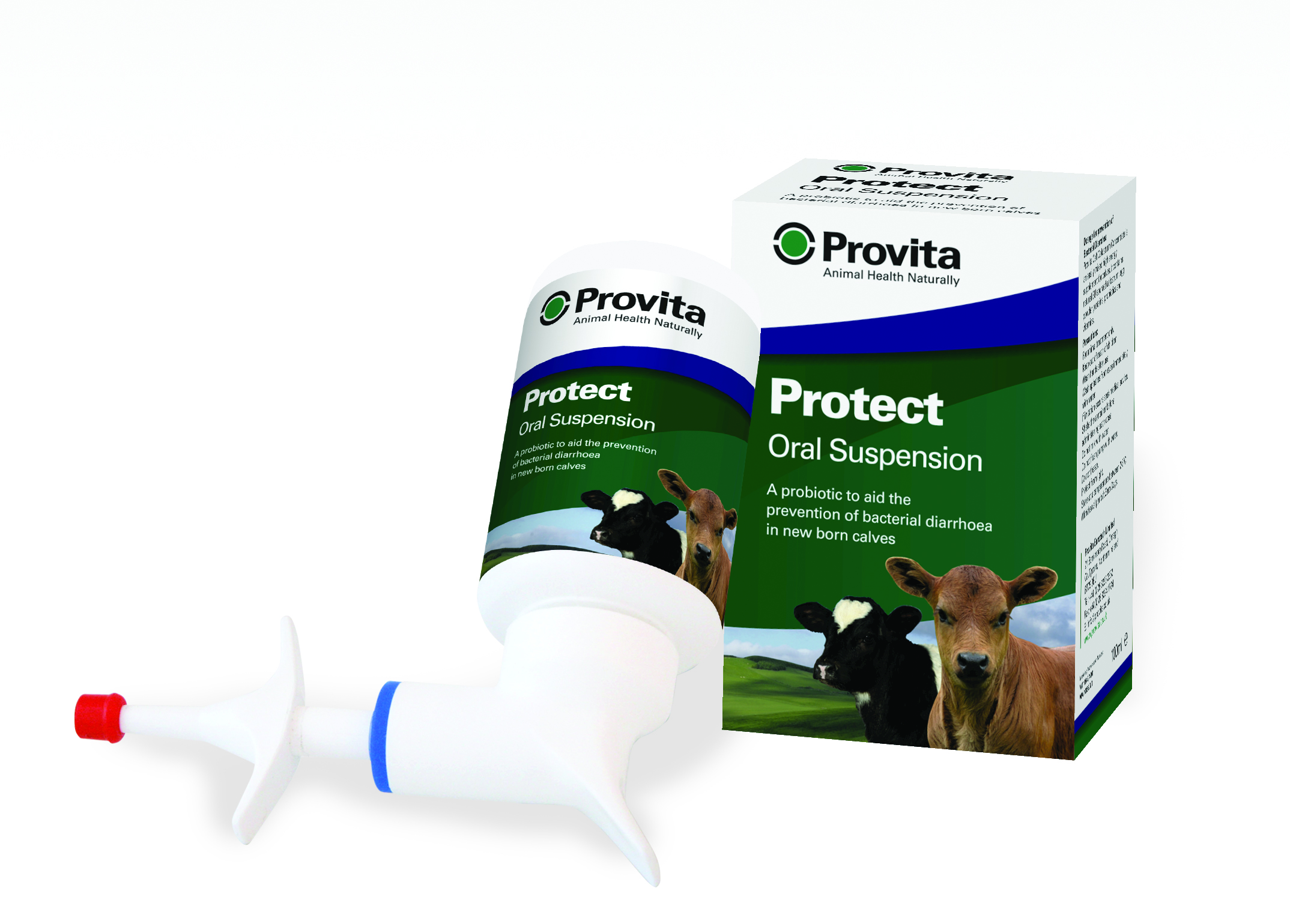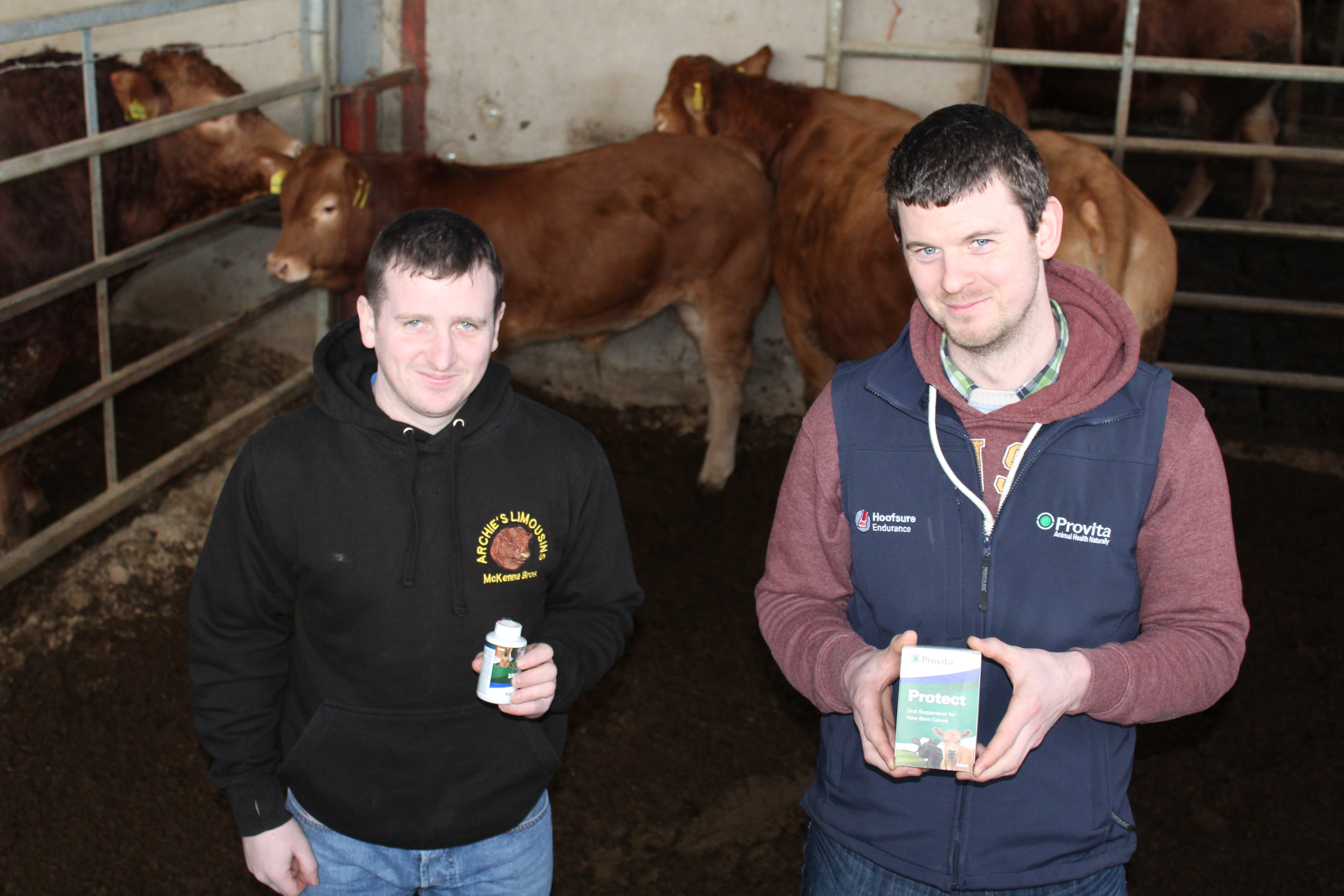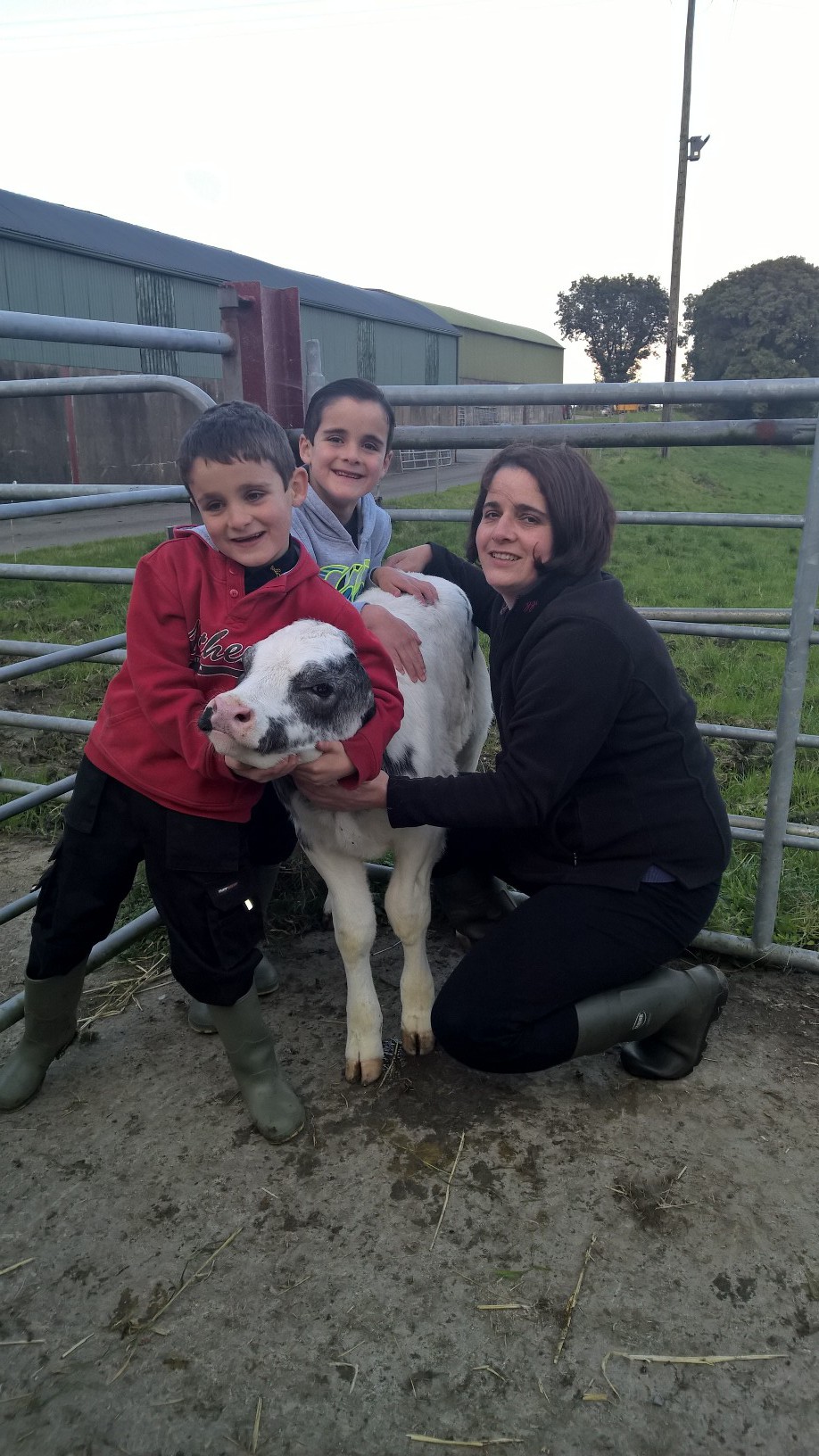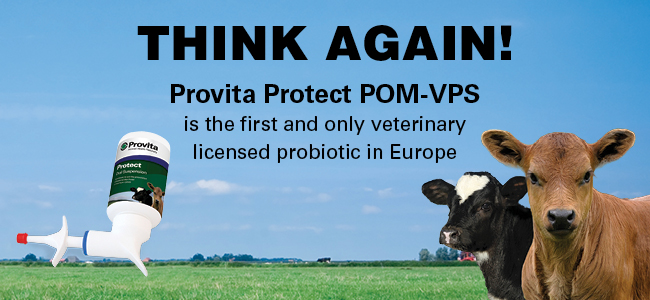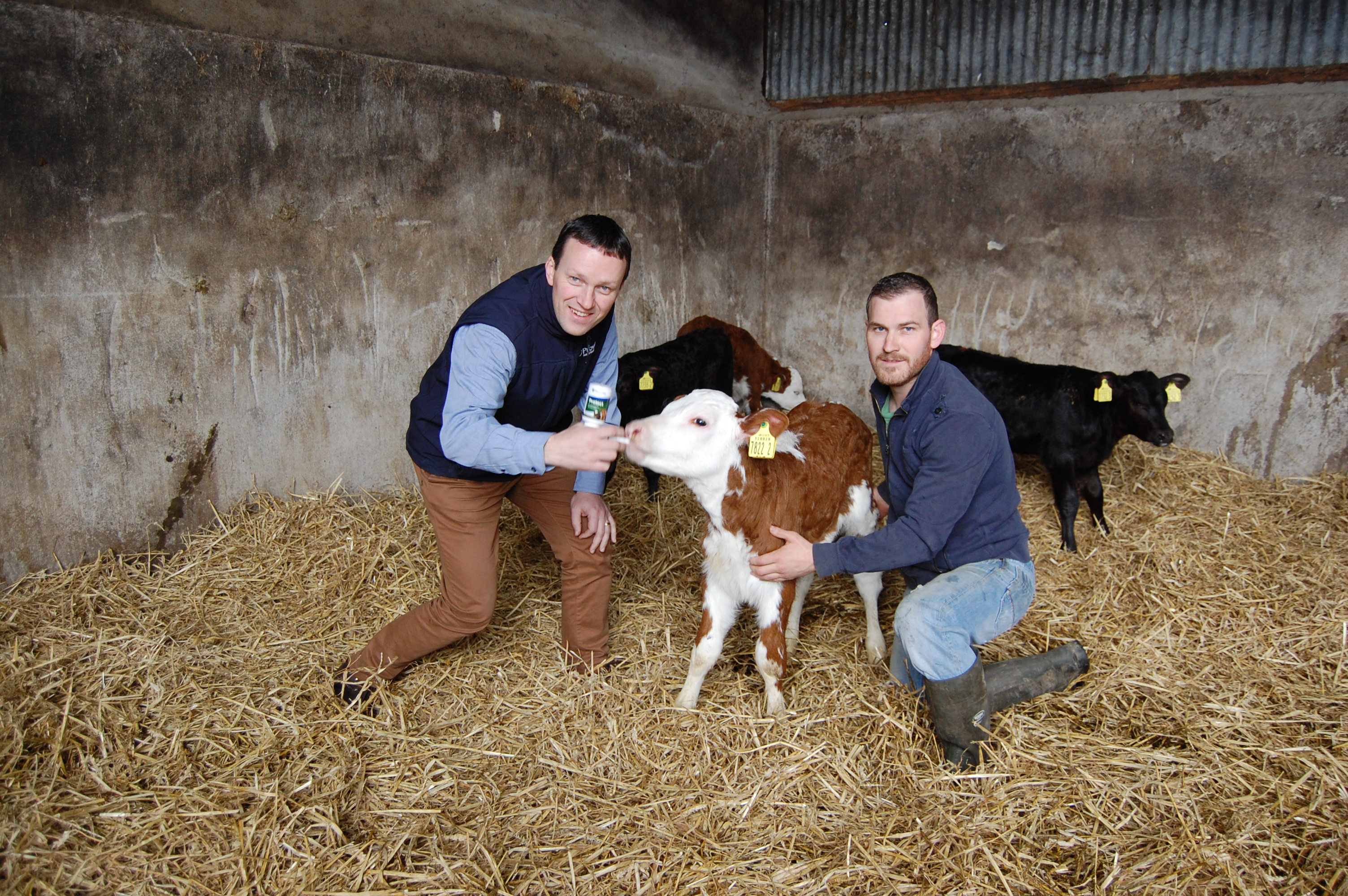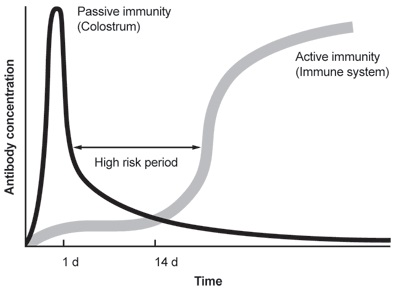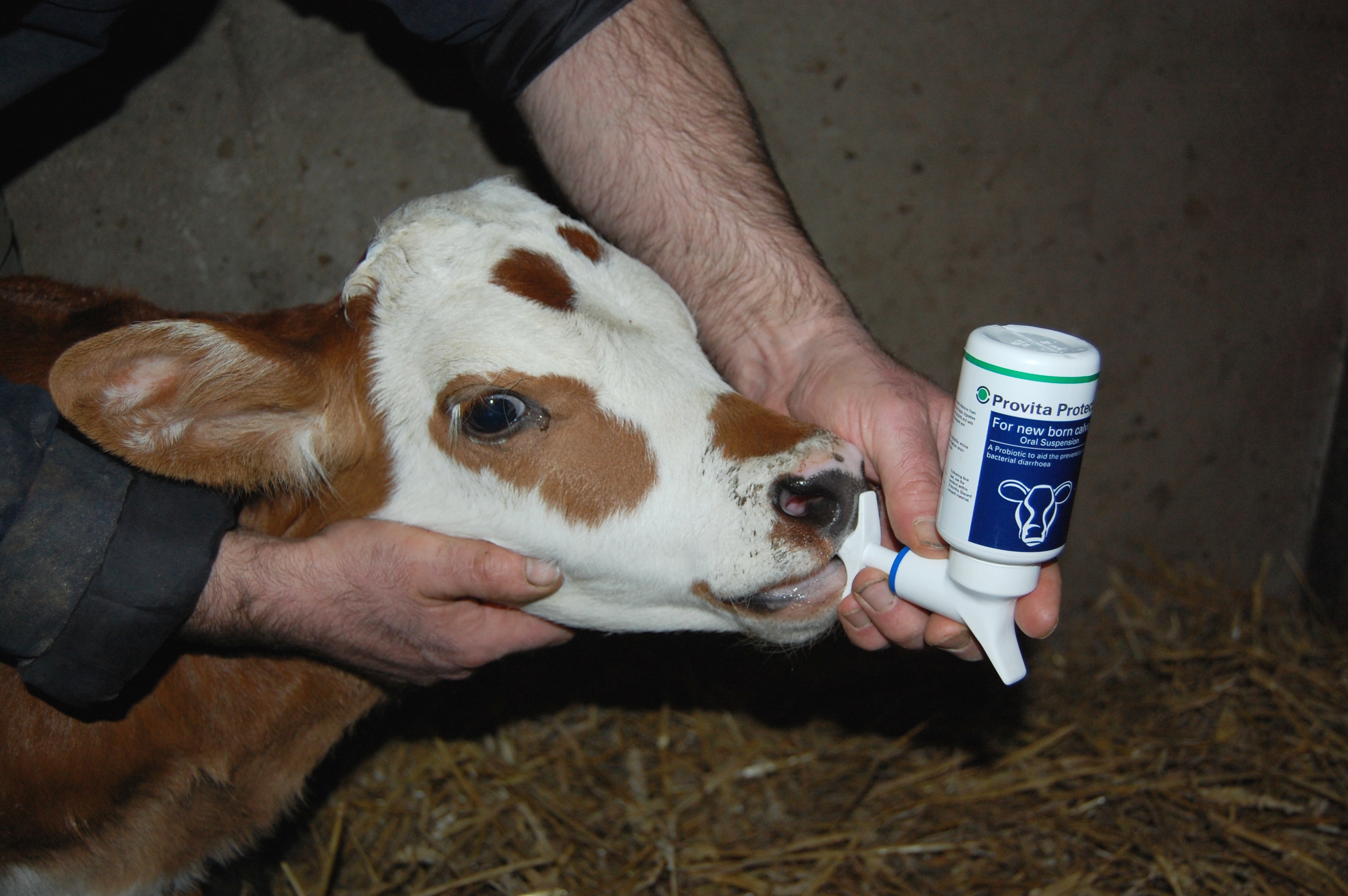In spring 2017 Cavan Johnson who is a dairy farmer in Co Down struggled to control calf scour. His veterinarian at Downe Veterinary Clinic contacted Provita to help investigate this case.
Provita recommended that Cavan only used fresh or instantly refrigerated colostrum and give every calf Provita Protect, the only medicinally licensed probiotic for the prevention of calf scour and Provita Calf Colostrum powder 300g. He began this protocol towards the end of calving with good results visible so he continued for this calving season to help suppress the build-up of pathogens. Cavan will give all calves Protect and Provita Calf Colostrum first, the cow’s own colostrum is given in the second feed, and this is especially convenient at night when around 50% of his cows calve. Provita products and protocols help to protect calves during this high-risk period, giving more protection, which enables it to overcome this risk period and develop a stronger active immunity.
